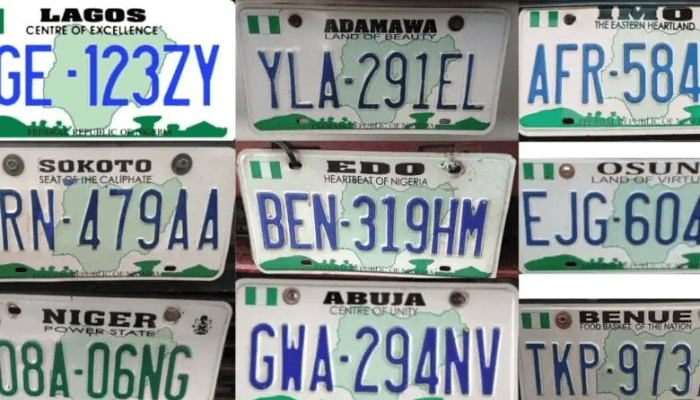ABUJA — Nigerian motorists will begin paying higher fees for the issuance of vehicle number plates and driver’s licenses from June 8, 2025, following a new pricing directive by the Joint Tax Board (JTB). The board, which oversees harmonised tax administration across the federation, said the adjustment reflects rising production costs and the integration of enhanced security features.
In a circular dispatched to all State Boards of Internal Revenue and motor licensing offices nationwide, the JTB announced that the increase applies to all categories of vehicle number plates and driver’s licenses, effective immediately from the stated date.
According to the revised fee structure, the cost of a standard private or commercial vehicle number plate will now be ₦30,000, up from the previous ₦18,750. Articulated vehicle plates will cost ₦90,000, while fancy number plates and out-of-series options have been pegged at ₦400,000 and ₦150,000 respectively. Government-registered vehicles and motorcycles are also subject to new rates.
Similarly, the cost of obtaining a driver’s license has been revised upward. A three-year driver’s license will now cost ₦15,000, while the five-year option is ₦21,000. For motorcycle and tricycle operators, the three-year and five-year licenses are now ₦7,000 and ₦11,000 respectively.
The board explained that the increase is partly due to the upgrade in the design and security architecture of the documents, aimed at curbing counterfeiting and improving authentication for law enforcement and traffic management purposes.
Federal Road Safety Corps (FRSC) spokesperson, Assistant Corps Marshal Jonas Agwu, confirmed the development and noted that the Corps has been directed to enforce compliance across all licensing centres nationwide.
“The enhancements made to both the number plates and driver’s licenses are in line with global best practices. The new features will enhance road safety monitoring and make it easier to track vehicles and drivers involved in road traffic offences,” he said.
The announcement has elicited mixed reactions from Nigerians, with some motorists expressing concerns over the timing of the hike, especially in light of the current economic challenges. Others called on government agencies to ensure that the new charges translate into improved service delivery and more efficient licensing systems.
Stakeholders are advised to take note of the changes and make appropriate financial plans ahead of renewals or fresh applications. The JTB has also urged all State Licensing Authorities and the FRSC to ensure smooth implementation of the new fee regime to avoid disruption in service.

